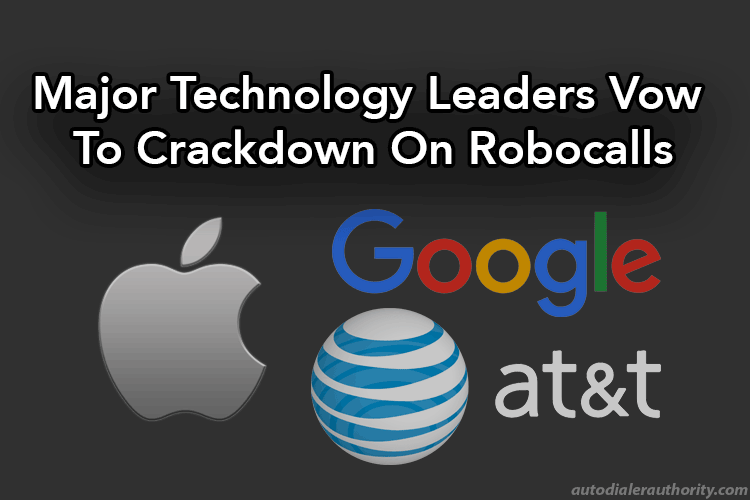Plans by the U.S. Government to crack down on robocalls have received support from over 30 major technology and communication companies. These automated pre-recorded calls that regulators have labelled as a scourge are often used by telemarketers and scam-artists.
A “Robocall Strike Force” recently held its first meeting with the U.S. Federal Communications Commission. Its members include AT&T Inc (T.N.), Google parent Alphabet Inc (GOOGL.O), Apple Inc (AAPL.O), Verizon Communications Inc (VZ.N) and Comcast Corp (CMCSA.O).
Chairman of the group AT&T CEO Randall Stephenson announced the strike force will report to the FCC by October 19th on “concrete plans to accelerate the development and adoption of new tools and solutions.”
Measures such as the implementation on Caller ID verification standards to block spoof phone numbers and the adoption of a “Do Not Originate” list to prevent scam-artists impersonating legitimate phone numbers from government agencies, banks, and other industries will be considered.
Robocalls are the number one complaint from consumers according to FCC Chairman Tom Wheeler. In July he urged all major companies to take steps to block their use.
This scourge must stop. The bad guys are beating the good guys with technology… due in large part to industry inaction.
– Tom Wheeler, FCC Chairman
Robocall blocking and filtering in not currently required by the FCC but it has strongly encouraged phone service providers to provide those services at no charge to the consumer.
The strike force is a major step forward in collective responsibility by all the players in the market. It brings together device makers, operating system developers, carriers, network designers and federal government agencies.
Stephenson emphasized “the breadth and complexity” of the problem facing the strike force. “This is going to require more than individual company initiatives and one-off blocking apps. Robocallers are a formidable adversary, notoriously hard to stop.”
He talked about the spectrum of robocalls from “the perfectly legal, but unwanted, like telemarketers and public opinion surveyors,” to the other end of the spectrum with “millions of calls that are blatantly illegal.” There is an urgent need for “a comprehensive play book,” that the industry can work from when formulating responses to the evolving technology and its unwanted usage.
Stephenson then stated that technical experts from many of the companies represented in the strike force have had, “preliminary conversations about short and longer-term initiatives.”
Joan Marsh, AT&T vice president of federal regulatory issues, cast further light on the difficulties that lie ahead for the strike force:
We have been wrangling with this problem long enough to know there is no silver bullet. Nothing by itself is going to do it.
The public advocacy group Consumers Union have welcomed the move saying the task force is a sign that “phone companies are taking more serious steps to protect their customers from unwanted calls.”
The strike force includes companies such as British Telecommunications Plc (BTCOM.UL), Blackberry Ltd (BB.TO), Frontier Communications (FTR.O), Charter Communications Inc. (CHTR.O), Microsoft Corp (MSFT.O), LG Electronics Inc. (066570.KS), Qualcomm Inc. (QCOM.O), Nokia Corp. (NOKIA.HE), Sirus XM Holdings Inc. (SIRI.O), Samsung Electronics Co. Ltd. (005939.KS), U.S. Cellular Corp (USM.N), and T-Mobile US Inc (TMUS.O).
